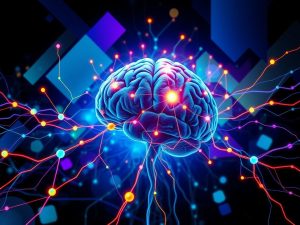The Power of Music: Reducing Stress and Boosting Mental Well-Being
Music is a powerful tool for emotional expression. It can alleviate stress and enhance mental well-being. Scientific evidence now supports these remarkable abilities of music.
Music therapy can lower heart rates and cortisol levels. It also promotes social connectedness and emotional competence. Researchers are exploring and validating the therapeutic applications of music.
Studies show music therapy decreases anxiety levels. It improves functioning in people with depression and bipolar disorder. During the COVID-19 pandemic, music helped people cope with emotional strain.
Music-making activities facilitate emotional release. Drumming circles, songwriting, and group singing promote self-reflection. These activities foster a deeper understanding of oneself and emotions.
Exposure to diverse musical genres cultivates empathy. It can enhance prosocial behaviour. This contributes to improved mental health and social well-being.
Understanding the Science Behind Music and Stress Reduction
Music has a remarkable power to ease stress and boost mental well-being. This stems from the complex interplay between sound, brain chemistry, and our body’s responses. Let’s explore how melodies and rhythms influence our emotional and physical states.
How Music Affects Brain Chemistry
Music activates specific regions of the brain’s outer layer, the cerebral cortex. These areas process various elements of music, such as tone, pitch, and rhythm. Music’s vibrations turn into electrical signals that neurons send throughout the brain.
This process triggers emotional responses and influences our bodily systems. The brain’s reaction to music can lead to significant changes in our mood and physical state.
The Role of Musical Vibrations in Neural Response
Studies show that music’s rhythms and melodies greatly impact our neural activity. Music at 60 beats per minute can sync the brain’s alpha waves, associated with relaxation. This can induce a calming effect, lowering stress and anxiety levels.
Impact on Cortisol Levels and Stress Hormones
The neuroscience of music reveals its ability to reduce cortisol, a stress-linked hormone. A 2013 review found that music can lower cortisol levels by up to 61%.
A 2019 study in PLoS One showed that 89% of people said music helped reduce their stress. This highlights music’s power as a stress-relief tool.
Music clearly impacts our brain chemistry and body responses. It’s a potent tool for stress reduction and mental well-being. Understanding this helps us use music to improve our health and life quality.
Hereyou can find more information about the cookie policy of this website.
“Listening to calming music has been shown to lower stress hormone levels and induce a relaxation response in the body.”
How Music Can Reduce Stress and Improve Mental Health
Finding effective ways to manage stress is crucial in our fast-paced world. Music can be a powerful tool for reducing stress and improving mental health. Research supports this beneficial effect of music on our well-being.
Music can alleviate stress by distracting us from daily stressors. Calming tunes can shift our focus, providing a peaceful escape. Studies show that relaxing classical music at bedtime improves sleep quality in students.
Music also impacts brain chemistry, lowering cortisol levels and reducing heart rate. It can help manage blood pressure and decrease pain medication needs during surgery.
Several studies have shown that calming music can lower blood pressure and reduce the need for pain medication in people undergoing surgery. This response can improve emotional regulation, leading to better mental health outcomes.
Music-making activities like drumming circles or group singing benefit mental health too. These experiences facilitate emotional release and promote self-reflection. They also create a sense of community, essential for good mental health.
Research indicates that listening to upbeat music with the intention of improving mood is effective. Music can also advocate for social justice and promote inclusivity. It amplifies diverse voices, helping people find a sense of belonging.
The power of music to reduce stress is well-documented. Incorporating music into your life can support mental well-being. This can be through listening, making music, or using it for social change.
“Music has a power of forming the character, and should therefore be introduced into the education of the young.” – Plato
The Physical Benefits of Musical Engagement
Music offers many physical benefits beyond its emotional and mental effects. It can improve heart health, enhance sleep, and help manage pain. The power of musical involvement is clear and significant.
Effects on Heart Rate and Blood Pressure
Calming music can help relax the body, lowering heart rate and blood pressure. In schools, music helps students control their emotions and reduce stress.
Impact on Sleep Quality and Recovery
Music can help improve sleep quality. A 2018 survey found that 62% of people use music to fall asleep. Soothing rhythms aid relaxation, leading to better rest and recovery.
Music’s Influence on Pain Management
Studies show that music can ease both long-term and post-surgery pain. Music therapy works better than just medicine for pain relief. It may change brain patterns and distract from discomfort.

“Listening to music has been linked to the reduction of anxiety and stress, with varying effects on physiological stress response and cortisol levels.”
| Physical Benefit | Impact |
|---|---|
| Cardiovascular Health | Decreased heart rate and blood pressure |
| Sleep Quality | Improved sleep duration and recovery |
| Pain Management | Reduced chronic and post-operative pain |
Therapeutic Applications of Music in Mental Healthcare
Music therapy is an evidence-based intervention that creates a safe space for emotional healing. It helps decrease anxiety and improves functioning in people with depression. This therapy can build resilience and support mental health treatment.
Music therapists work with patients of all ages, creating personalised sessions. These may include goal-oriented music listening, playing, composing, and songwriting. Such interventions can greatly impact the mental well-being of those facing various challenges.
- The US music industry generates approximately £160 billion per year, emphasising the value people place on music’s core effects on emotion, reward, and affiliation.
- In the UK, there are only about 10,000 board-certified music therapists, while about 58 million adults live with mental illness, leading to a treatment capacity of just 0.5%.
- The National Institutes of Health (NIH) has sponsored research topics involving music, including improving treatment response in cancer, stress and pain management, affect modulation in mood disorders, anxiolysis in anxiety disorders, social functioning in neurodevelopmental disorders, palliative care in advanced illness, neural rehabilitation after injury, and wellness through exercise.
| Study | Findings |
|---|---|
| Aalbers et al. (2017) | Music therapy provides short-term beneficial effects for people with depression, with improvements in depressive symptoms when added to usual treatment. |
| Bradt et al. (2021) | Music interventions for people with cancer may have beneficial effects on anxiety, depression, hope, pain, and fatigue compared to standard care. |
| de Witte et al. (2022) | A significant medium-to-strong effect of music therapy on stress-related outcomes in mental healthcare and medical settings. |
Music therapy offers vast and promising applications in mental healthcare. It provides a supportive environment for emotional healing and mental health treatment. This therapy can significantly improve the well-being of those facing mental health challenges.
Conclusion
Music’s ability to reduce stress and boost mental well-being is clear. It significantly affects our brain chemistry, neural responses, and overall physiological state. Music lowers cortisol levels and increases endorphins and dopamine, making it a versatile stress-management tool.
Music therapy has shown great promise in treating various mental health conditions. It helps with anxiety, depression, and even schizophrenia. Music’s unique qualities support individuals on their path to improved mental and emotional health.
Research continues to reveal how music impacts our minds and bodies. Incorporating music for well-being into our daily lives can be a powerful ally. It supports our pursuit of holistic health and happiness.
FAQ
What are the benefits of listening to music?
Music has the power to reduce stress and anxiety. It can relieve pain and improve focus. Listening to music lowers heart rate and releases endorphins, boosting overall well-being.
How does music affect the brain?
Music activates specific regions of the cerebral cortex. Vibrations become electrical signals, which neurons transmit to brain areas. These areas detect tone, pitch, and rhythm, influencing emotions and bodily systems.
What are the mechanisms by which music can reduce stress?
Music can distract from stressors and lower anxiety levels. It improves focus on complex tasks. Music therapy has shown positive results in treating mental health conditions.
What are the physical benefits of musical engagement?
Calming music can lead to decreased heart rate and blood pressure. It improves sleep quality and helps relieve chronic pain. Music can also ease post-operative pain.
How does music therapy work?
Music therapy is an evidence-based intervention for health and education goals. It provides a safe environment for healing trauma and building resilience. Music therapists plan individualised sessions for patients of all ages.
These sessions may include goal-oriented music listening and playing. Composing music and songwriting are also common activities in music therapy.
How can music be used to advocate for social justice and promote inclusivity?
Music-making activities can facilitate emotional release and promote self-reflection. Drumming circles, songwriting, and group singing create a sense of community. These activities can advocate for social justice and promote inclusivity.














